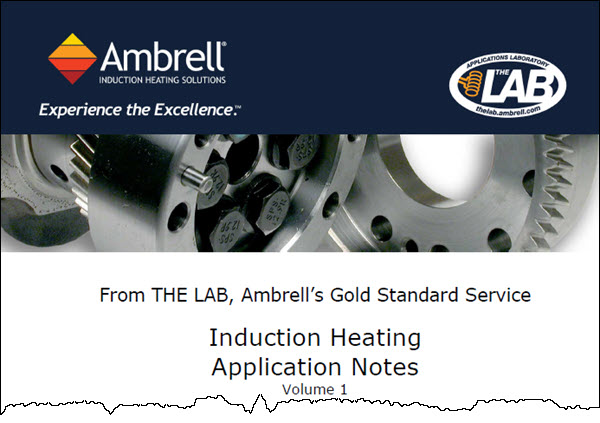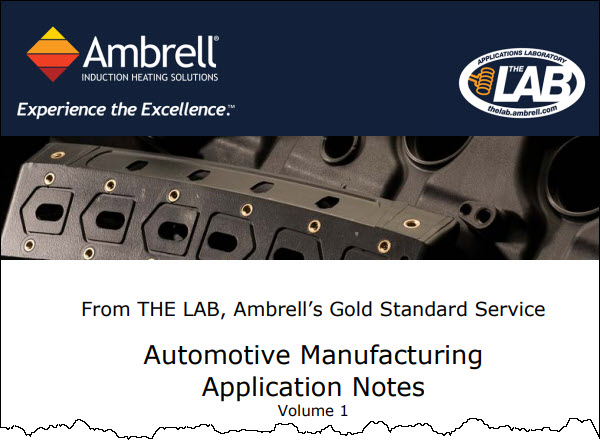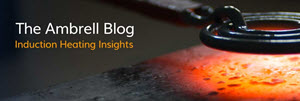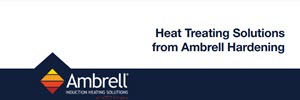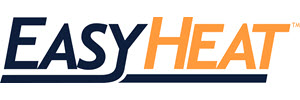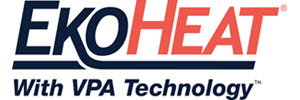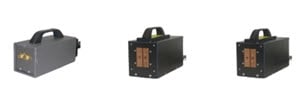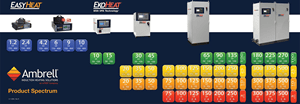Induction Hardening
- Home
- How It's Used
- Hardening
What is induction hardening?
Hardening is any metallurgical process by which a material is given a higher resistance to plastic deformation. This is accomplished by many methods, including heating. Induction heating has been widely used for decades for this purpose.
Induction generates an electromagnetic field in a work coil that induces currents in the conductive material of a workpiece placed within or near the coil. Friction from these currents elevates the temperature of the workpiece to be hardened.
Benefits of Using Induction Heating for Hardening
Induction heating uses a precise electromagnetic field to raise and hold the temperature of your material to the required level for your hardening process. This can help you meet tight production tolerances with precise, repeatable localized hardening for faster heating cycles without having to rely on open flame or the restrictions of batch processes.
hardening Application Notes
Select from our collection of hardening notes, developed over 39 years supporting our customers. Read how we helped to solve their process heating challenges!
Optimum power is delivered to the steel blades to understand the heat pattern. The feasibility of the application is confirmed. The target temperature is achieved in less than 15 seconds.
To quickly heat a steel surgical blade to 2000 °F (1093 °C) within 2 seconds so as to harden the blade edge.
A four-turn helical concentrating coil is specially designed to deliver uniform heat to the steel seat belt retraction gear.
 Hardening the teeth of a large saw blade
Hardening the teeth of a large saw blade
A torch isn't as precise as induction nor is it repeatable; induction heating is highly repeatable, uses less energy than a torch and offers instant on/off heating
 Case hardening a steel fitting (machined parts)
Case hardening a steel fitting (machined parts)
The coil design enabled the part to be raised into the heating coil from the bottom. The design was also made to ensure it will work well within the customer's current setup...
 Surface hardening of steel screws
Surface hardening of steel screws
Induction heating enables precise application of heat, faster process time and production rates and the ability to be incorporated into existing production lines
 Hardening teeth on a steel motorcycle gear
Hardening teeth on a steel motorcycle gear
A single turn helical coil is used to heat the gear. The gear is placed on a spindle and rotated at 300-350 RPM's.
A five turn helical coil is used heat the screw threads. The screw is placed in the coil, heat is applied for 8 seconds to achieve a 2 long zone at the required hardness.
 Hardening the end of steel hand-held marking stamps
Hardening the end of steel hand-held marking stamps
To harden various size ends of hand held marking stamps. The area to be hardened is 3/4 (19mm) up the shank.
 Hardening of Steel Cam Assembly
Hardening of Steel Cam Assembly
Hardening the cam outer surfaces with induction results in uniform heating for uniform results, one coil can be used for many geometries, consistent results from piece to piece
 Case Hardening of Armature Shaft
Case Hardening of Armature Shaft
A five-turn helical coil is used to heat the gear end of the shaft to 1700 °F
Heat cast iron pulleys to 1600 °F(871.1 °C) in order to achieve a hardness of 55 Rockwell C.
 Hardening Stainless Steel Surgical Knife Blades
Hardening Stainless Steel Surgical Knife Blades
A two-turn helical coil with an internal quartz tube designed to scan the length of the blade is used to heat the blade to 1850 °F (1010 °C) to achieve the desired hardness.
 Hardening Bed Knife Blade for Reel Type Lawn Mowers
Hardening Bed Knife Blade for Reel Type Lawn Mowers
The hardness desired is between 45 to 55 Rockwell C, and should be measured 0.062 in (1.6 mm) from the cutting edge.
What are some applications of heat treating?
Through hardening treats the entire part and is used on medium and high carbon steels for moderate strength and surface hardness. Because through hardening requires a deep penetrating heat that can damage the surface of a component if not regulated precisely, induction heating is an excellent solution for this application.
Case hardening treats the part’s surface area and some of the interior area, according to the depth of hardening requirements of the application.
How can induction be used in a hardening application?
Induction can be applied to harden many types of cast irons and steel alloys.
From our blog
More hardening resources
Headline
Add your content here.
Headline
Add your content here.
Headline
Add your content here.
Our Systems for hardening with Induction
Headline
Add your content here.
Headline
Add your content here.
Headline
Add your content here.
Headline
Add your content here.
AMBRELL CORPORATION
1655 Lyell Avenue
Rochester, NY 14606
United States
![]() Directions
Directions
T: +1 585 889 9000
F: +1 585 889 4030
Contact Sales
Contact Orders
Contact Service
AMBRELL B.V.
Holtersweg 1
7556 BS Hengelo
The Netherlands
![]() Directions
Directions
T: +31 880 150 100
F: +31 546 788 154
Contact Sales
Contact Orders
Contact Service
AMBRELL Ltd.
Front Suite, 1st Floor, Charles House
148-149 Gt Charles Street
Birmingham, B3 3HT
United Kingdom
T: +44 1242 514042
F: +31 546 788 154
Contact Sales
Contact Orders
Contact Service


 Hardening Steel Blades
Hardening Steel Blades Hardening surgical blades
Hardening surgical blades  Hardening Seat Belt Parts
Hardening Seat Belt Parts Hardening steel screw threads
Hardening steel screw threads Hardening Cast Iron Pulleys
Hardening Cast Iron Pulleys